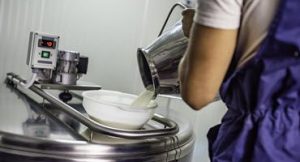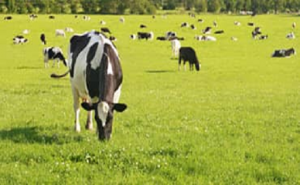
“China’s own military released a report maybe two months ago that said the single main reason for us not to intervene in Taiwan directly is that the U.S. might see this as an excuse to impose sanctions if we do not bring in food from outside China,” Chris Kuehl, Armada Corporate Intelligence chief economist said in an episode of Farming the Countryside.
Also in the report, China acknowledged that they are only 20% independent in soybeans and buy 80% of what it needs.
China’s military report comes as the country grapples with a protein shortage.
Up the Pork Ante
In October, China sold 200,000 metric tons of pork from state reserves to help ease surging domestic pork prices.
Jim Wiesemeyer, Pro Farmer policy analyst, says China announced it now plans to release its seventh batch of frozen pork from reserves.
Increasing pork production might be the country’s main tactic to tackle low pork numbers.
China’s sow herd grew 2% in September versus the prior month to 43.62 million head, according to the country’s ag ministry. The hog herd increased 3.1% from the prior month to 443.94 million head and was up 1.4% from year-ago.
Will History Repeat Itself?
With the herd increase and reserves in tow, will the resources be enough to curb China’s imports of U.S. protein and allow the country to invade Taiwan? Kuehl isn’t convinced.
He says the choice to hold off on war in Taiwan is based on a page from China’s history books.
“In the last 2,500 years, every Chinese government that has fallen, has fallen over food,” says Kuehl. “They need those import markets—be it from the U.S, Canada, Brazil, Argentina or Australia.”
China can likely “get along” without U.S. imports, as Kuehl thinks they would seek out other countries. However, he doesn’t feel their exports could handle a riff with the U.S. due to its sales stake in stores such as Walmart and Target.
Exploring Other Avenues
Any hope for becoming less dependent on imports is useless in China, according to Kuehl, who says almost two-thirds of its land is “useless.”
“As far as ag, China is desert, mountains and simply not up for this—they’re actually quite resource poor,” he says. “They import oil and many precious metals that they need. Some things they have independence with, but not many.”
U.S.’s Trade Tactics
The news in China comes as the Office of the U.S. Trade Representative (USTR) announced next steps in its four-year review of tariff actions in China.
USTR will open an electronic portal on Nov. 15 to gather information on the impacts of China’s acts, policies and practices in technology transfer, intellectual property and innovation.
According to USTR, the electronic portal will be open to the public, with the questions in the portal made available to respondents sometime this week.

























